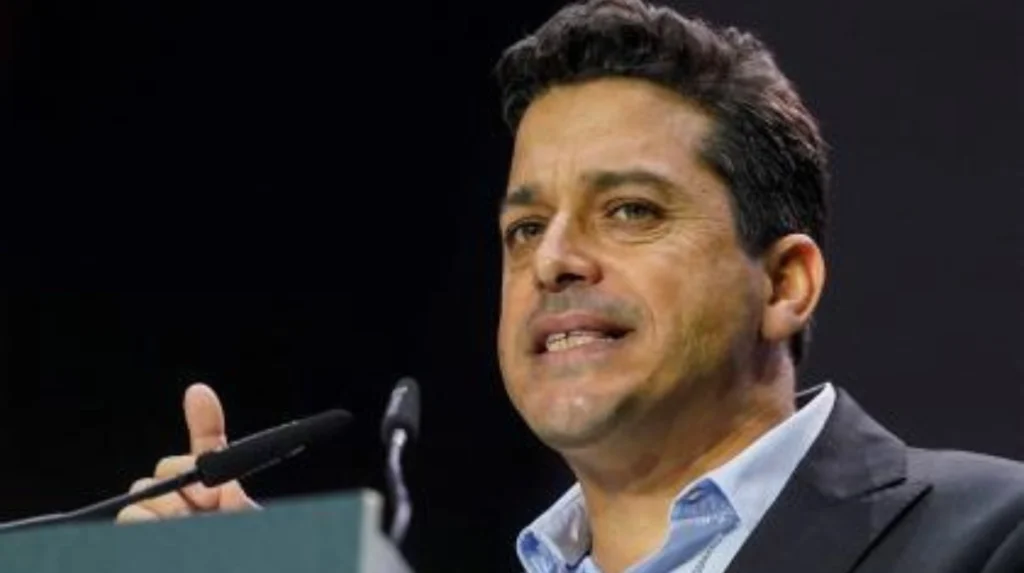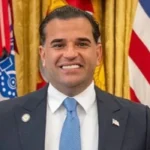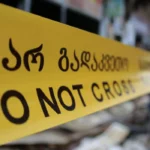In a volatile climate marked by escalating conflict and political recriminations, Israel’s Minister of Diaspora Affairs and Combating Antisemitism, Amichai Chikli, delivered a scathing critique of the European Union’s recent sanctions on Israel. Chikli’s remarks came amid growing unease over a surge in antisemitic incidents across Europe, an issue prominently highlighted by more than 100 European rabbis who warned EU leadership of “visceral antisemitic hate” sweeping the continent since the Hamas-led attack against Israel on October 7.
Chikli accused the EU of a stark double standard, stating
“The European Union is an institution that tolerates two types of Jews: those willing to undermine Israel, and dead Jews.”
This harsh accusation was directed at the EU’s decision to suspend bilateral support to Israel and partially freeze a trade agreement following EU President Ursula von der Leyen’s State of the Union address.
EU’s Sanctions and Support Suspension
During her annual address, von der Leyen articulated the EU’s rationale for imposing sanctions, citing a “man-made famine” in Gaza resulting from Israeli actions and accusing Israel of undermining the prospects for a two-state solution. She proposed halting “all payments” to Israel, with the exception of funds allocated to the Yad Vashem World Holocaust Remembrance Centre and civil society projects. This move reflects the EU’s attempt to balance condemnation of Israeli policies with recognition of historical Jewish suffering.
Chikli responded sharply to this development, condemning the EU’s actions as hypocritical. He highlighted the EU’s financial support for organizations accusing Israel of genocide and promoting boycotts, saying,
“The European Union is an institution that pours hundreds of millions into organisations accusing us of genocide and calling for boycotts of Israel, only to launch boycotts itself and label Israeli products based on those very reports.”
He underscored the perceived inconsistency by adding,
“Supporting Yad Vashem matters to Ursula von der Leyen. Living Jews mean nothing to her.”
European Rabbis’ Warning on Antisemitism Escalation
Simultaneously, concern about antisemitic backlash in Europe has surged. Over 100 rabbis from across the continent sent a letter to President von der Leyen stressing the urgent need for enhanced protective measures. The letter comes in the wake of alarming incidents, including blatant acts of antisemitism such as a shopkeeper in Flensburg, Germany, displaying a sign stating,
“Jews are banned from here! Nothing personal. No antisemitism. Just can’t stand you.”
In Belgium, a commemoration event for Jewish politician Jean Gol in Liège descended into violence. Demonstrators, many of them students, hurled firecrackers and rotten apples, injuring 12 police officers while accusing attendees of complicity in the Gaza conflict. These incidents underscore the rabbis’ plea for urgent action to counteract the spread of hostility targeting Jewish communities.
Statistics from Belgium’s anti-discrimination authority, UNIA, reveal that antisemitic incidents more than quadrupled in recent years, with 277 recorded cases in 2024 compared to 59 in 2023. This stark increase adds further weight to the rabbis’ call for stronger protection measures and societal vigilance.
European Commission’s Response and Criticism of Governments
A spokesperson for the European Commission condemned those who are bringing the Gaza conflict into Europe, vowing to “step up” protection for Jewish communities. The spokesperson emphasized that
“Jewish people must feel safe across Europe,”
acknowledging the severity of the threat reflected in the surge of antisemitic violence and incidents.
Despite official commitments, Chikli issued a pointed rebuke to European governments for their failure to confront radical Islam and extremism aggressively. He stated,
“Europe stands at a crossroads: either wage an uncompromising war against radical Islam, or surrender.”
Chikli singled out Belgium, urging Jews to leave the country without delay, calling it a place with “no future, no hope.”
By contrast, he expressed cautious optimism about Britain and France, suggesting that
“the British and French peoples have not yet spoken their last word.”
According to him, the most positive developments in Europe are in Hungary and the Czech Republic, where immigration policies reflect his vision of sanity and national security.
Broader Implications for Israel-EU Relations and European Jewish Communities
The divergence in perspectives between Israel and the European Union reveals deeper fractures in the geopolitical landscape shaped by the ongoing Gaza conflict. The EU’s sanctions and financial suspensions indicate a firm stance against Israeli policies viewed by Brussels as harmful to peace efforts.
At the same time, the warnings from European rabbis and the spike in antisemitic incidents highlight an urgent humanitarian concern that transcends diplomatic disputes. The dual challenges of political discord and social instability threaten both Israel’s international relations and the safety of Jewish communities within Europe.
The situation underscores a complex paradox: efforts to hold Israel accountable for its actions are inadvertently fueling antisemitic backlash on European soil. This dynamic places pressure on European governments and institutions to navigate a path that respects human rights, historical memory, and security for all citizens.
In conclusion, the confrontation between Israeli Minister Amichai Chikli and the European Union vividly illustrates the contentious atmosphere surrounding the Gaza conflict’s international repercussions. Chikli’s denunciation of the EU’s sanctions frames the Union as morally compromised, while European rabbis’ appeals expose a growing crisis of antisemitism demanding urgent attention.
The European Commission’s pledge to enhance security for Jewish communities, while necessary, must be matched by concrete actions to stem hate crimes and ensure that Europe remains a safe home for Jews. With volatile political alignments and deep-seated historical tensions in play, the path forward requires both robust diplomacy and unwavering protection of human rights.







